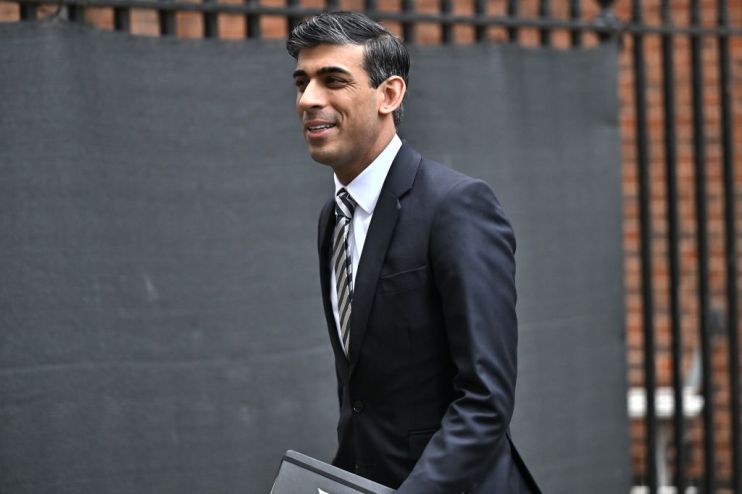Rampant inflation to push tax bills £12bn above forecasts

Rampant inflation is set to deliver an even harsher hit to households’ tax bills than first thought, reveals fresh analysis released today.
A higher cost of living will result in a £12.5bn larger tax hike, piling more pressure on Brits’ already stretched finances, according to the Institute for Fiscal Studies (IFS).
Chancellor Rishi Sunak’s decision to freeze income thresholds will raise households’ tax bills by over £20bn, much higher than the £8bn initially forecast.
Income tax thresholds usually rise in line with inflation to ensure workers’ pay rises are not entirely cancelled out by higher tax bills.
Some employers lift workers’ wages in line with inflation to maintain their living standards.
However, a large proportion of Brits will have to pay more tax due to Chancellor Rishi Sunak freezing income tax thresholds for four years at the budget last March.
Since the announcement, inflation has smashed economists’ expectations, with some now expecting it to peak at 10 per cent, meaning even more Brits will be subjected to a higher tax rate.
Sunak has promised to cut taxes in the lead up to the next election in 2024.
Next month, households and businesses will also have to absorb a 1.25 percentage point national insurance rise, which is forecast to add a further £13bn to the country’s tax bill.
“Usually tax thresholds go up in line with inflation,” Tom Waters, senior research economist at the IFS, said.
“Last March, when the Chancellor announced a four-year freeze in income tax thresholds, inflation was fairly low and so he expected it to raise about £8bn per year. Since then inflation has risen rapidly and is expected to rise even further,” he added.
A separate study published today found raising the level at which employers start paying workers’ national insurance contributions will help protect low income Brits from the worst effects of the planned hike.
Increasing the threshold to around £11,200, up from the planned £9,880, will shield poorer workers from a real terms tax hike of over £182, research by the Centre for Policy Studies found.
Fiscal drag occurs when an individual who receives a pay rise is bumped into a higher marginal tax bracket due to thresholds staying the same.
It can result in workers actually having lower take home pay despite being given a wage bump.